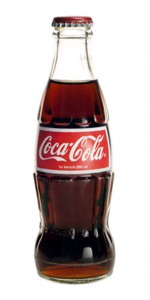OFWs, Happiness and Coke (Or why a Coca-Cola Advert is Short Circuiting My Brain)
OFWs, Happiness and Coke (Or why a Coca-Cola Advert is Short Circuiting My Brain)
By Alex Felipe
Let’s get the obvious over with: Coke’s Christmas viral video (“Coca-Cola Where Will Happiness Strike Next: The OFW Project”) is a FANTASTIC advertisement. It has a strong emotional pull, high production values, and connects the product to family, struggle, and how hardship can be overcome by the simple things, like a Coca-Cola.
In the ad, Coke sends three overseas foreign workers (OFWs) back to the Philippines to reunite with their families. Its central message seems to be: Coke cares about the plight of OFWs.
Well done Coke. [insert ironic soft clap here]
Coca-Cola has had a long history in the Philippines (RP), its primary economic connection is tied to the exploitative feudal hacienda farming system.
Philippine sugar was one of the main reasons for the American invasion in 1899. Then president McKinley was backed by The Sugar Trust, the 6th largest US corporation which controlled 98% of the sugar refining interests. The RP economy was set up to supply American sugar needs with ‘locally’ produced sugar.
Before WWII sugar made up 60% of the value of all Philippine exports. At that time the industry supported over one million jobs (total RP population in 1939, 16 million). Today that number is at best around the 500,000 mark (current population 94mil).
The industry has been in decline since “independence.” This continued through the 1960s with the development of the corn syrup (sugar exports down to 20%). The big crash began in the 1980s when Coke switched from sugar to corn syrup in its US product (sugar exports fall to 7%), and just this past summer the RP sugar industry proposed a boycott of Coke for bypassing the Philippine sugar market all together.
It’s not just about losses in the sugar industry. Look again at that timeline. The sugar industry began to fall apart in the 60s and intensified in the 80s to near collapse today. Those were the decades that gave birth to the unofficial Labour Export Policy, a system that went into full gear in the 80s as a way to prop up the governments budget deficits. A country that was set up to be an export of raw goods was financially desperate, so they became an exporter of people. In 1984 around 350,000 OFWs left the country. By 2006 over 1 million were migrant workers. Coke has also been bottled in the country since 1912, and their presence has done little to improve the lives of everyday people.
The company is renowned across the global south as notorious for using terror tactics to quiet unruly workers trying to organize [see ‘killercoke.org’]. Just ask Ghay Portajada, who has been without her father, the president of the RP Coke worker’s union, since 1987 when he was abducted and never seen again. It’s a combination of these factors that leads to today’s 4000 OFWs leaving the Philippines everyday. The US came to the Philippines to create a cheap supply of raw materials and labour through the hacienda system. By supporting and enlarging the semi-feudal system the US created an economy dependent on exports. This unequal political and economic system required large scale poverty.
Widespread poverty and violent union busting drives down the cost of labour. This violence is permissible because both the imperialist corporations and the landowning elite (who happen to also be the political class) share similar interests. Should the foreign imperialists be inconvenienced then the local elites lose the source of their money and power. So with all this being clear, the question that remains is ‘why?’ Why do people (including OFWs themselves) love this advertisement so much? Why does the clearly negative effect of Coca-Cola not translate, and instead positive attributes are connected to the ad and the product?
It began in the 1920s with a man named Edward Bernays, Sigmund Freud’s nephew. He saw great value in his uncle’s studies into human psychology; he rightly realized that they could be for the benefit of capitalism.
It was a time of great unrest. People were calling for greater fairness and social equity. Unions were mobilizing strong opposition to the status quo, and there was a need from the elites for a method to control the restless lower classes resulting from the industrial revolution.
Bernays knew that through use of Freud’s theories you could manipulate thought, “If we understand the mechanism and motives of the group mind, is it not possible to control and regiment the masses according to our will without their knowing it?” [Bernays, ‘Propaganda’]
Out of this would come the political idea of how to control the masses: satisfying inner selfish desires made people happy and thus docile.
On the surface the Coke OFW ad is a feel good tear jerker, dig deeper and it’s an insult to reality, to the people, and the people and organizations that actually do care about the plight of OFWs. In the end we feel good, but we are demoralized, and we are belittled.
If we are to look at this ad and honestly hear its message it would be: Coke cares enough about what you think of them that they mimed concern for OFWs–because either you, or at least someone you know is an OFW. And if we think Coke cares, then we will forgive them, or at the very least, maybe we’ll forget their complicity and just go with it, because everyone else is.
All the while the reality of the company is bitter and dark.

Comments (0)